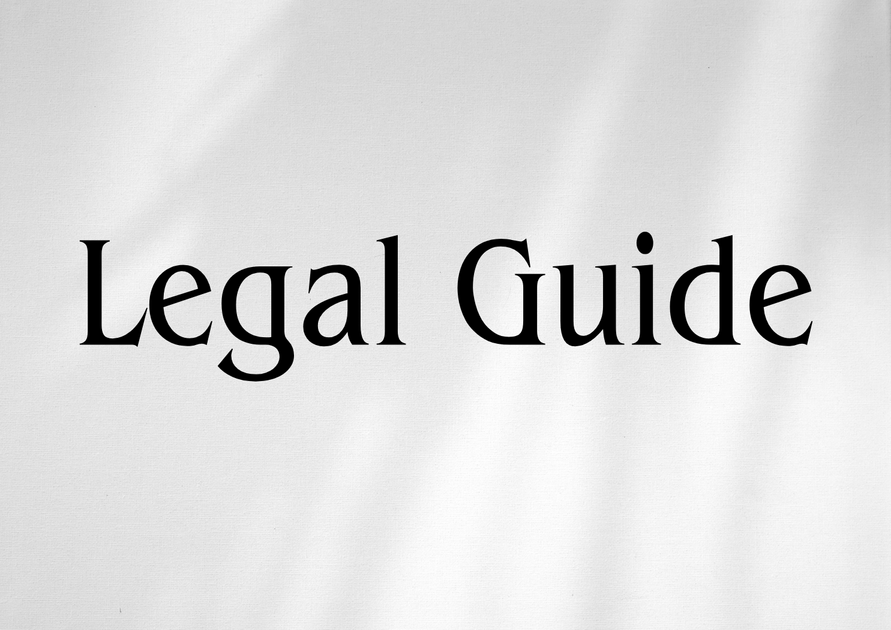Introduction
In the dynamic financial ecosystem of the United Arab Emirates (UAE), robust debt recovery and enforcement procedures are essential for banks to maintain liquidity, manage risk, and uphold market confidence. The UAE’s diversified economy, growing expatriate workforce, and internationally connected business environment have necessitated continuous modernization of its legal framework governing debt collection. Recent legislative reforms, including updates to Federal Decree-Law No. (42) of 2022 (the Civil Procedure Law) and the 2021 amendments to the Federal Commercial Transactions Law, signal a clear intent by UAE authorities to enhance creditor protections while streamlining judicial efficiency. These changes are pivotal for banks, corporate creditors, and organizations engaged in commercial lending or credit-related transactions.
This article offers a comprehensive analysis of debt recovery and enforcement procedures as they apply to UAE banks, with a focus on recent legal updates, practical compliance strategies, and forward-looking recommendations for business and legal leaders. The guidance provided herein is based on authoritative legal sources, including the UAE Ministry of Justice, Federal Legal Gazette, and official government portals. This consultancy-grade advisory is designed to empower banks, in-house legal teams, and C-suite executives with the insights necessary to navigate the evolving UAE legal landscape and to ensure effective, compliant debt collection practices.
Table of Contents
- Legal Framework for Debt Recovery in the UAE
- Pre-Litigation Procedures: Strategies and Best Practices
- Litigation and Judicial Enforcement of Bank Debts
- UAE Law 2025 Updates: Key Changes Affecting Debt Recovery
- Comparative Analysis: Old vs New Debt Recovery Provisions
- Real-World Case Studies and Hypothetical Scenarios
- Risks of Non-Compliance and Effective Compliance Strategies
- Conclusion and Future Trends in UAE Debt Recovery
Legal Framework for Debt Recovery in the UAE
Overview of Primary Legislation
The legal landscape for debt recovery in the UAE is shaped by several foundational statutes and regulations, each addressing distinct aspects of the debt collection and enforcement process. The most pertinent legal instruments include:
- Federal Decree-Law No. (42) of 2022 (the Civil Procedure Law)
- Federal Law No. (18) of 1993 (the Commercial Transactions Law), as amended by Federal Decree Law No. (14) of 2020 and 2021 updates
- UAE Penal Code for dishonored cheques (pre-2022, with reduced criminal liability in recent years)
- Bankruptcy Law (Federal Decree-Law No. (9) of 2016 as amended)
Collectively, these statutes establish the general principles of creditor rights, methods of enforcing monetary claims, the legal validity of loan agreements, promissory notes, and the use of payment orders for uncontested bank debt.
Key Legal Provisions Impacting Banks
Among the reforms most relevant to banks are those concerning:
- The expedited payment order process for uncontested debts
- Judicial oversight of asset seizure and auctions
- The evolving legal treatment of bounced cheques
- Bankruptcy and restructuring proceedings
These mechanisms are designed to enhance both creditor protection and judicial efficiency. For banks operating in areas such as retail lending, credit cards, SME financing, and corporate lending, understanding and leveraging these statutory frameworks is no longer optional—it is imperative to both maximize recoveries and minimize litigation costs.
Pre-Litigation Procedures: Strategies and Best Practices
Internal Debt Collection Steps
Many banking relationships in the UAE begin with personalized negotiation and, where disputes arise, banks are encouraged to pursue amicable settlement before initiating court proceedings. Effective pre-litigation recovery may involve:
- Issuing formal demand letters in writing, referencing the applicable loan agreement and repayment schedule
- Providing debtors with settlement or restructuring options, where commercially viable
- Ensuring all communications are properly documented and preserved, to support potential future litigation
- Engaging third-party debt collection agencies, subject to UAE Central Bank guidelines
Given the UAE’s multi-cultural client base, it is advisable to ensure demand letters are delivered in both Arabic (the official language of UAE courts) and English if the client relationship was conducted in English.
Out-of-Court Settlements and Alternative Dispute Resolution (ADR)
With a strong government-led emphasis on decongesting courts and promoting dispute resolution, banks are encouraged to explore mediation and settlement options facilitated by UAE mediation centers or through the notary public system. These approaches can expedite recovery and preserve commercial relationships.
Mitigating Compliance Risk During Pre-Litigation Collection
It is essential that all collection activity complies with the Central Bank’s Consumer Protection Regulation and any applicable guidelines regarding customer communication, data privacy, and anti-harassment standards. Non-compliance can result in regulatory penalties or reputational damage, even if the underlying debt is legitimate.
Litigation and Judicial Enforcement of Bank Debts
Determining the Appropriate Legal Pathway
When pre-litigation efforts are unsuccessful, banks have several judicial avenues, each with distinct prerequisites and timelines:
- Payment Orders: Streamlined proceedings for uncontested or documentary-based monetary claims (Article 62 of Civil Procedure Law No. 42 of 2022)
- Ordinary Civil/Commercial Litigation: For disputed debts or cases involving counterclaims
- Criminal Complaints: Limited primarily to cases involving fraudulent conduct or cheque-related offenses under the amended Penal Code
| Pathway | When to Use | Duration | Key Features |
|---|---|---|---|
| Payment Order | Uncontested debt with promissory notes, cheques, or clear documentary evidence | 1–2 months | Ex parte, expedited, appeals possible |
| Civil Lawsuit | Contested debts, counterclaims, complex contracts | 3–18 months | Full trial process, right to defend |
| Criminal Action | Cheque bounce with criminal intent or fraud | 2–6 months | Penalties for offenders, partial civil recovery possible |
Payment Order Applications: Legal Requirements and Process
Pursuant to Article 62 of the Civil Procedure Law, banks may apply for a payment order if the claim arises from a written instrument (such as an unpaid cheque, promissory note, or acknowledged debt) and the amount is uncontested or liquidated. The application is submitted to the Summary Court, typically with supporting documentation including:
- Original loan or facility agreement
- Certified copies of unpaid securities (e.g., cheques, bills of exchange)
- Statement of account and calculation of outstanding balance
A payment order may be issued without summoning the debtor, but can be appealed within a 15-day statutory window. This mechanism has sharply reduced recovery timeframes for banks in cases where documentary evidence is clear.
Enforcement of Judgments: Assets, Garnishments, and Auctions
Once a court-ordered payment judgment or payment order has been obtained, the UAE’s judicial enforcement procedures allow for the seizure and auction of debtor assets, wage garnishments, and orders to freeze bank accounts. Notably, the Civil Procedure Law requires due process safeguards at each step, including:
- Notice requirements prior to asset seizure
- Minimum periods for voluntary repayment
- Strict rules governing forced sale of real estate or valuable movables
For high-value or cross-border recoveries, UAE courts may apply the principles set out in bilateral treaties (such as the GCC Enforcement Protocol or agreements with France and India), provided that reciprocity is assured.
Role of the UAE Execution Courts
Specialist Execution Courts, established under the Civil Procedure Law, are responsible for overseeing forced recovery, including the following enforcement actions:
- Freezing and liquidating bank accounts
- Seizure of vehicles and real estate
- Garnishment of salaries, subject to statutory minima
- Travel bans for debtors and corporate officers in specific cases
Execution Courts operate strict timelines and require meticulous documentation by creditor banks. Any procedural misstep may result in delays or cancellation of enforcement measures.
UAE Law 2025 Updates: Key Changes Affecting Debt Recovery
Amendments to the Civil Procedure Law (Federal Decree-Law No. (42) of 2022)
Recent updates, effective from 2022 and slated for further revision in 2025, have introduced the following critical enhancements:
- Expanded Scope of Payment Orders: Now applicable to a wider range of documentary debts, including digital and electronic instruments.
- Reduced Formalities: Streamlined application and service requirements to curtail procedural delays.
- Digital Enforcement Procedures: Execution courts are empowered to use electronic notice and auctions, increasing transparency and efficiency.
- New Provisions for Cross-Border Enforcement: Facilitates asset recovery across GCC states and signatory jurisdictions, contingent on treaty reciprocity.
Updates on Cheque Law and Decriminalization of Unintentional Bounced Cheques
The 2022 and 2023 amendments to the Commercial Transactions Law have further decriminalized cases of bounced cheques stemming from insufficient funds, shifting the emphasis from criminal sanctions to civil enforcement and administrative penalties. However, cheques issued with fraudulent intent or bad faith remain subject to criminal prosecution.
| Provision | Pre-2022 | Post-2022/2025 Update |
|---|---|---|
| General Penalty for Bounced Cheques | Criminal prosecution and imprisonment | Primarily civil recovery, limited criminal liability |
| Presentation as Payment Order Basis | Limited acceptance for expedited recovery | Cheques widely accepted as basis for payment orders |
| Blocking of Offender Bank Accounts | At court discretion, not always systematized | Streamlined account freezing and execution |
Visual suggestion: A process flow diagram illustrating the new streamlined payment order procedure, from application to enforcement, could assist in clarifying these steps for bankers and clients alike.
Comparative Analysis: Old vs New Debt Recovery Provisions
To appreciate the impact of these reforms, the following table summarizes key differences between previous and current statutory regimes as they affect bank creditors:
| Aspect | Pre-2022 Law | Post-2022/2025 Updates |
|---|---|---|
| Use of Payment Orders | Restrictive, limited instruments qualified | Broader use, more instruments qualifying (digital, electronic) |
| Cheque Enforcement | Primarily criminal, limited civil enforcement | Mostly civil, focus on rapid asset freezing |
| Mandatory Court Hearings | Required in most enforcement matters | Ex parte for payment orders, fewer hearings |
| Cross-border Enforcement | More challenging, ad hoc basis | Structured via treaties, Execution Courts’ powers enhanced |
| Debtor Remedies | Longer timelines for objections | Condensed appeal periods, debtor evidence required early |
This comparison underscores the UAE’s strategic shift to a creditor-driven, digital-first enforcement regime, with significant benefits for banks seeking timely asset recovery and reduced litigation costs.
Real-World Case Studies and Hypothetical Scenarios
Case Study 1: Retail Loan Default and Payment Order Success
Background: A UAE bank extended a car loan to a resident expatriate. After several missed payments, the bank issued a formal demand, to no avail. The debtor could not be reached for mediation, and documentation (loan agreement, original copy of Emirates ID, and undated security cheque) was intact.
Application: The bank filed for a payment order under Article 62 of the Civil Procedure Law, appending the tenured agreement and the bounced cheque. The court issued a payment order expeditiously as there was no substantive defense, and the bank was able to secure a travel ban against the debtor before judgment enforcement.
Outcome and Lessons: The rapidity of the electronic payment order process prevented asset dissipation and highlighted the value of maintaining complete, well-structured documentary records at the outset of a lending relationship.
Case Study 2: SME Loan and Cross-Border Asset Recovery
Background: A Dubai-based SME defaulted on a working capital facility, with its managing director absconding to a GCC country. The bank leveraged its security documents and applied for enforcement in both UAE and via a GCC-recognized treaty.
Application: Electronic notifications to the Execution Court and cross-border service initiated asset freezing in both UAE and the debtor’s new jurisdiction, preventing further dissipation of secured property.
Outcome and Lessons: The 2025 updates to cross-border enforcement have facilitated a much smoother process for recovering debts across GCC member states, provided that banks’ documentation and local representation are in order.
Hypothetical Example: Credit Card Debt with No Security Cheque
Scenario: A consumer defaults on a credit card without providing a security cheque at account opening. Documentation includes signed card application and clear statement of account. The bank issues a demand notice, but no payment is forthcoming.
Legal Analysis: The bank may still pursue a payment order using the signed application and statement, but, absent a cheque, execution measures such as freezing the debtor’s account may be less immediate. However, the digitization of documentary evidence and streamlined enforcement procedures now greatly benefit such claimants compared to previous law.
Risks of Non-Compliance and Effective Compliance Strategies
Risks of Non-Compliance with Updated Debt Recovery Law
- Procedural Dismissal: Incomplete documentation, untimely filings, or failure to meet payment order requirements can result in dismissal of claims—with costs awarded against the bank.
- Regulatory Penalties: Banks may face scrutiny from the Central Bank for breaches of borrower communication or privacy regulations.
- Loss of Creditor Rights: Delay or non-adherence to updated procedures (especially regarding appeals or electronic filings) may permanently bar certain recovery steps.
- Reputational Risks: Aggressive or non-compliant collection tactics can attract media and regulatory attention, eroding customer trust and brand value.
Effective Compliance Strategies for UAE Banks
- Ensure all lending documentation is comprehensive, electronically archived, and court-ready from day one
- Closely follow updates from the UAE Ministry of Justice, Central Bank, and Federal Legal Gazette for regulatory changes
- Maintain a compliance checklist for debt collection covering pre-litigation, litigation, and enforcement stages—all reviewed by legal counsel
- Invest in staff training on the nuances of payment orders, execution court filings, and cross-border recovery protocols
- Adopt digital workflow systems for monitoring deadlines, appeals, and documentation
- Engage reputable legal consultants and local counsel for complex or high-value recoveries
Visual suggestion: A compliance checklist infographic or table could be placed here to summarize step-wise requirements for compliant debt collection and judgment enforcement.
Conclusion and Future Trends in UAE Debt Recovery
As the UAE continues its transformation into a financial and commercial hub, its legal framework is evolving to balance creditor enforceability with borrower fairness. The 2025 updates to debt recovery and enforcement procedures are a testament to the government’s commitment to judicial efficiency, digitalization, and international cooperation. For banks, the benefits include expedited recoveries, predictable enforcement timelines, and enhanced access to cross-border remedies.
Yet, the evolving landscape also necessitates continuous adaptation. Banks and corporate creditors must remain vigilant in tracking new regulations, investing in compliance infrastructure, and seeking qualified legal consultancy to navigate emerging challenges. Adherence to best practices in documentation, customer communications, and procedural diligence will be crucial for mitigating litigation risk and maximizing asset recoveries.
Looking forward, we expect further advances in digital enforcement, wider use of AI-driven case management, and deeper harmonization with international creditor protection standards. Forward-thinking organizations will treat legal compliance not as a reactive cost, but as a fundamental pillar for sustainable business growth in the UAE’s dynamic financial sector.
For more tailored advice or to discuss complex debt recovery scenarios, clients are encouraged to consult directly with professional UAE legal consultants who are at the forefront of regulatory change and enforcement practice.




